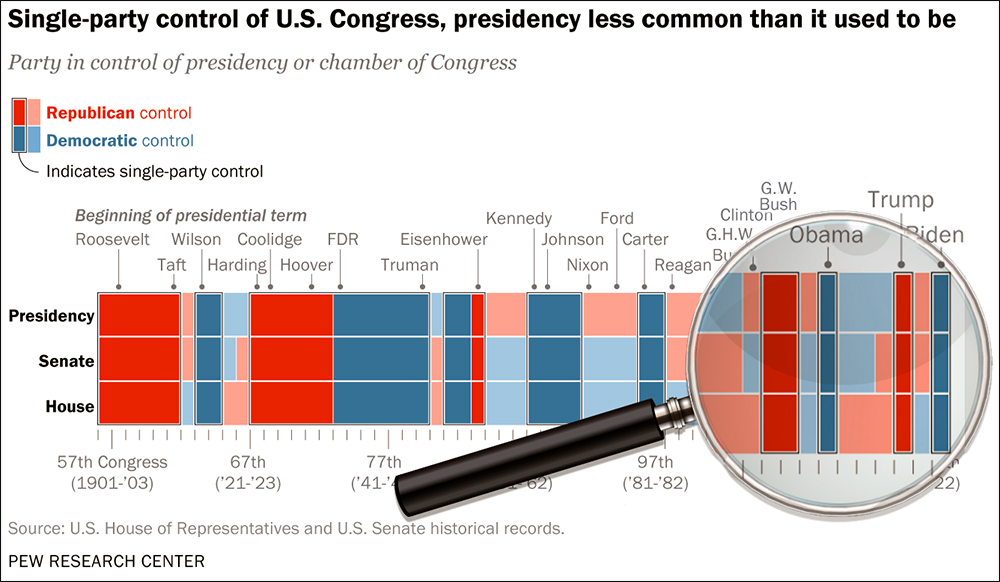
Political control of the health sector has taken root over the last half century, mostly with passage of massive spending to draw more people into government programs. Federal spending on health programs now constitutes 30% of outlays.
But Americans increasingly see its risks and dangers—with the scandalous difficulty Medicaid patients have in getting appointments, to the ultra-narrow networks in Obamacare plans resulting in long waits for care, to Medicare’s looming bankruptcy.
The most important health reform laws in this century passed when one party or the other held the White House and both houses of Congress.
- Bush. Republicans held a trifecta under George W. Bush and passed the Medicare Modernization Act (MMA) with bipartisan support in 2003. It created Health Savings Accounts which more than 32 million people now own, the Medicare Advantage private option in which more than 30 million seniors are voluntarily enrolled, and the prescription drug benefit covering 49 million seniors.
All rely on choice and competition to provide coverage and benefits with a much lower cost to the taxpayer than massively expensive government-run programs. - Obama. The controversial Affordable Care Act passed in 2010 with support only by Democrats when the party held the White House, the House, and the Senate, albeit by a razor-thin supermajority. More than 16 million people are enrolled in Obamacare plans this year, many forced out of their previous private coverage (that had lower premiums and deductibles).
- Trump. The last time Republicans held both houses of Congress and the White House was in 2017-18 under President Trump. That was a chance to open a new path for choice and competition in the individual and small group health insurance markets that had been overtaken by Obamacare’s regulatory choke-hold. The plans were ready but were doomed after John McCain’s retaliatory thumbs down.
- Biden. President Biden had a trifecta for two years and passed the so-called Inflation Reduction Act last year, with pharmaceutical price controls that are a death blow to research into many new cures and treatments.
Republicans now hold only the House with the slimmest margin and hopefully will put the brakes on more reckless spending, but as important, committees are going full speed ahead to set an agenda for 2025—the next chance for much needed policy changes.
We held a virtual Health Policy Consensus Group meeting on Wednesday, and the amount of work the health policy community is doing to provide ideas and analysis is inspiring.
We need to switch gears to begin to work toward bipartisan agreement on sensible reforms with creation of a task force of serious members from the House and Senate to produce Medicare policy changes that both parties agree are needed. These ideas and options could set a new baseline for further progress on sensible reform.
Congress did something like this on infrastructure in the last Congress. They need to do it on Medicare, too, just as during the Clinton years with the Breaux-Thomas Medicare Commission. While legislation didn’t pass then, it set the stage for the MMA’s passage in 2003.
Speaker McCarthy is being praised for his leadership and for including Democrat Leader Hakeem Jeffries in plans and discussions. He could do the same now for Medicare—hopefully passing much needed bipartisan reforms and also minimizing its use as a political football.
